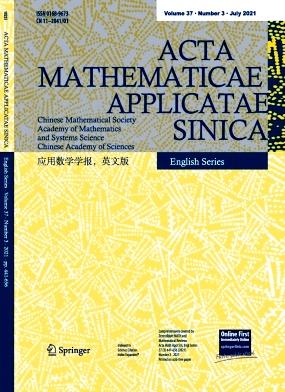二维热带气候模式的全球强解和大时间行为
IF 0.9
4区 数学
Q3 MATHEMATICS, APPLIED
Acta Mathematicae Applicatae Sinica, English Series
Pub Date : 2023-11-08
DOI:10.1007/s10255-023-1090-3
引用次数: 0
摘要
本文主要研究初始数据较小的二维热带气候模型的全局适定性和大时间行为。我们首先在Besov空间中建立了解的全局适定性,然后利用频率分解方法得到了解的最优衰变率。具体来说,对于低频部分,我们使用Schonbek的傅立叶分裂方法和频谱分析方法,对于高频部分,我们采用全局能量估计和指数衰减算子的行为。本文章由计算机程序翻译,如有差异,请以英文原文为准。
Global Strong Solutions and Large-time Behavior of 2D Tropical Climate Model
In this paper we mainly deal with the global well-posedness and large-time behavior of the 2D tropical climate model with small initial data. We first establish the global well-posedness of solution in the Besov space, then we obtain the optimal decay rates of solutions by virtue of the frequency decomposition method. Specifically, for the low frequency part, we use the Fourier splitting method of Schonbek and the spectrum analysis method, and for the high frequency part, we use the global energy estimate and the behavior of exponentially decay operator.
求助全文
通过发布文献求助,成功后即可免费获取论文全文。
去求助
来源期刊
CiteScore
1.30
自引率
0.00%
发文量
70
审稿时长
3.0 months
期刊介绍:
Acta Mathematicae Applicatae Sinica (English Series) is a quarterly journal established by the Chinese Mathematical Society. The journal publishes high quality research papers from all branches of applied mathematics, and particularly welcomes those from partial differential equations, computational mathematics, applied probability, mathematical finance, statistics, dynamical systems, optimization and management science.

 求助内容:
求助内容: 应助结果提醒方式:
应助结果提醒方式:


